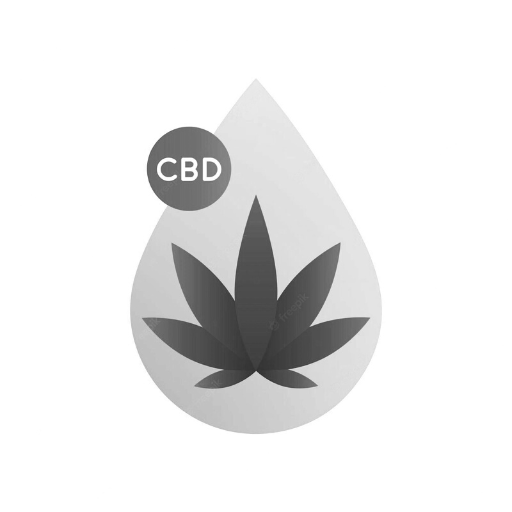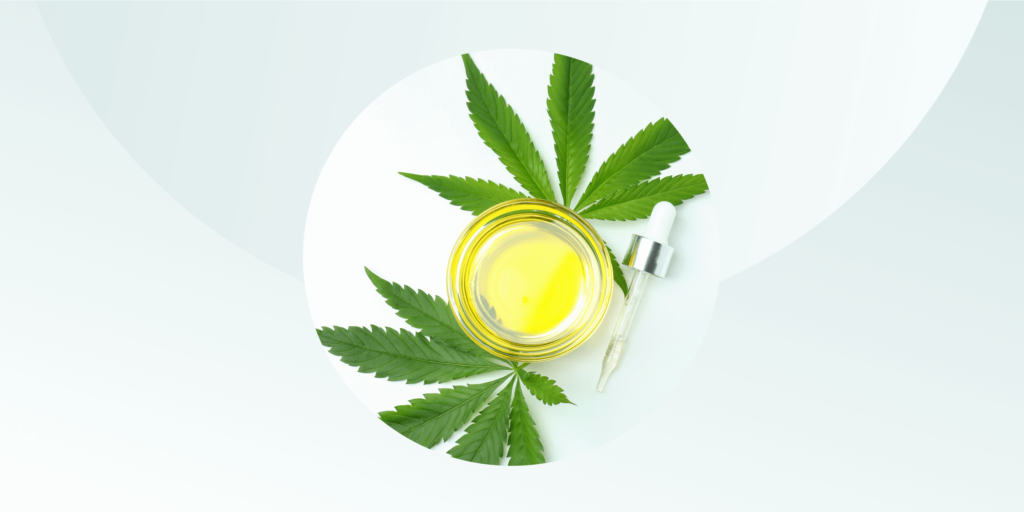
CBD and Fitness Recovery: How It Can Enhance Athletic Performance

Introduction
In recent years, cannabidiol (CBD) has gained considerable attention for its potential health benefits, including its role in fitness recovery and enhancing athletic performance. This natural compound, derived from the hemp plant, is non-psychoactive, meaning it doesn’t produce the “high” associated with its cousin, tetrahydrocannabinol (THC). Athletes and fitness enthusiasts are increasingly turning to CBD for its potential to aid recovery, reduce inflammation, manage pain, and improve overall performance. This comprehensive blog explores how CBD can be a game-changer in fitness recovery and athletic performance.
Understanding CBD and Its Mechanisms

CBD is one of over 100 cannabinoids found in the cannabis plant. Unlike THC, CBD does not bind directly to cannabinoid receptors in the brain. Instead, it interacts with the endocannabinoid system (ECS), a complex network of receptors and neurotransmitters that play a crucial role in regulating various physiological processes, including pain perception, immune response, and mood. The ECS helps maintain homeostasis, or balance, within the body, and CBD’s interaction with this system can produce a range of therapeutic effects.
The Role of the Endocannabinoid System in Fitness
The ECS is involved in several processes that are critical to fitness and athletic performance:
1. Pain and Inflammation
The ECS helps modulate pain and inflammation, which are common issues for athletes. By interacting with ECS receptors, CBD can potentially reduce the perception of pain and the inflammatory response to exercise-induced muscle damage. This modulation is particularly beneficial for athletes who frequently experience muscle soreness, joint pain, and other discomforts associated with intense physical activity. Additionally, by reducing inflammation, CBD can help prevent long-term damage to muscles and joints, allowing athletes to maintain peak performance and extend their careers. The anti-inflammatory effects of CBD can also aid in faster recovery times, enabling athletes to train harder and more consistently without the risk of overtraining injuries.
2. Stress and Anxiety
Physical exertion and competition can lead to increased stress and anxiety. The ECS plays a role in regulating mood and stress responses, and CBD’s interaction with this system can help reduce anxiety levels. This is crucial for athletes, as high stress and anxiety can impair performance, disrupt focus, and affect overall well-being. By promoting a sense of calm and relaxation, CBD helps athletes maintain mental clarity and composure during training and competition. Additionally, reducing anxiety can improve sleep quality, further enhancing recovery and performance. Athletes who manage their stress and anxiety effectively are more likely to perform at their best, avoid burnout, and sustain long-term success in their sports.
3. Sleep and Recovery
Quality sleep is essential for recovery and performance. The ECS is involved in regulating sleep patterns, and CBD can promote better sleep by addressing issues like insomnia and sleep disturbances. For athletes, restful sleep is crucial as it allows the body to repair muscles, consolidate memory, and release growth hormones, all of which are vital for optimal performance and recovery. By improving sleep quality, CBD helps athletes wake up feeling refreshed and ready for their training or competitions. Moreover, better sleep reduces the risk of injuries and overtraining, ensuring that athletes can maintain consistent performance levels. Enhanced sleep also supports mental health, leading to improved focus and decision-making during high-pressure situations.
Also Read: Unlocking the Potential: Can CBG Aid in Weight Loss?
CBD for Pain Management and Inflammation
One of the primary reasons athletes turn to CBD is its potential to manage pain and reduce inflammation. Exercise, especially intense or prolonged, can lead to muscle soreness and inflammation. Traditional methods for managing pain and inflammation, such as non-steroidal anti-inflammatory drugs (NSAIDs), come with potential side effects and risks when used long-term. CBD offers a natural alternative.
1. Reducing Muscle Soreness
Delayed Onset Muscle Soreness (DOMS) is a common condition experienced by athletes after strenuous exercise. It is characterized by muscle pain and stiffness that typically peaks 24-48 hours after activity. CBD’s anti-inflammatory properties can help alleviate DOMS by reducing inflammation in the affected muscles.
2. Managing Chronic Pain
Athletes who suffer from chronic pain conditions, such as arthritis or old injuries, can also benefit from CBD. Studies have shown that CBD can reduce chronic pain by interacting with pain receptors in the brain and decreasing the inflammatory response. This makes it a viable option for managing long-term pain without the need for opioids or other prescription medications.
Enhancing Recovery with CBD
Recovery is a critical component of any fitness regimen. Proper recovery allows the body to repair and strengthen itself between workouts, reducing the risk of injury and improving performance. CBD can support recovery in several ways:
1. Promoting Muscle Repair
Intense exercise causes microscopic damage to muscle fibers, which leads to muscle growth as the body repairs and adapts. CBD’s anti-inflammatory properties can help reduce the inflammation that occurs during this repair process, potentially speeding up recovery time.
2. Improving Sleep Quality
Sleep is essential for recovery, as it is during sleep that the body carries out many of its repair processes. CBD can improve sleep quality by addressing issues such as insomnia, sleep apnea, and general sleep disturbances. By promoting deeper, more restful sleep, CBD helps ensure that the body has the time it needs to recover and rejuvenate.
3. Reducing Stress and Anxiety
Mental stress and anxiety can negatively impact athletic performance and recovery. CBD has been shown to reduce anxiety levels by interacting with serotonin receptors in the brain. This can lead to a calmer, more focused state of mind, which is beneficial for both performance and recovery.
Enhancing Athletic Performance with CBD
In addition to aiding recovery, CBD can also enhance athletic performance in several ways:
1. Boosting Energy Levels
While CBD is often associated with relaxation, it can also help boost energy levels by improving sleep quality and reducing stress. By ensuring that athletes are well-rested and mentally focused, CBD can contribute to improved energy and stamina during workouts and competitions. This enhanced energy can lead to more effective training sessions, allowing athletes to push their limits and achieve better results. Additionally, by reducing the physical and mental fatigue that can come from intense training, CBD helps athletes maintain a higher level of performance over time. The combination of better rest, reduced stress, and increased energy creates a holistic approach to athletic enhancement, supporting both physical and mental resilience.
2. Enhancing Focus and Concentration
Mental clarity and focus are crucial for peak performance. CBD’s ability to reduce anxiety and promote a calm state of mind can help athletes maintain focus and concentration during training and competition. This mental edge can be the difference between winning and losing in high-stakes scenarios. With reduced anxiety, athletes are less likely to be distracted by stressors and more able to concentrate on their goals and strategies. Furthermore, the calming effects of CBD can help in managing pre-competition nerves and pressure, allowing athletes to perform at their best under stress. By supporting cognitive function and emotional balance, CBD enables athletes to approach their sport with confidence and precision, enhancing their overall performance.
3. Supporting Cardiovascular Health
Regular exercise puts stress on the cardiovascular system. CBD has been shown to have cardiovascular benefits, including reducing blood pressure and improving overall heart health. By supporting cardiovascular function, CBD can help athletes maintain their stamina and endurance. The anti-inflammatory properties of CBD can also reduce the risk of cardiovascular-related injuries and improve recovery times after intense workouts. Additionally, CBD’s ability to promote relaxation and reduce stress levels can have a positive impact on heart health, as chronic stress is a known risk factor for cardiovascular issues. Overall, integrating CBD into an athlete’s routine can contribute to a healthier cardiovascular system, enhancing their ability to sustain prolonged physical activity and achieve peak performance.
Choosing the Right CBD Products
When selecting CBD products for fitness recovery and performance enhancement, athletes should consider the following factors:
1. Form of CBD
CBD is available in various forms, including oils, capsules, edibles, topicals, and more. Each form has its own advantages and disadvantages, depending on the desired effect and convenience. For example, CBD oils and capsules are popular for systemic effects, while topicals can be applied directly to sore muscles for targeted relief.
2. Dosage
The optimal dosage of CBD can vary depending on factors such as body weight, metabolism, and the severity of symptoms. It is recommended to start with a low dose and gradually increase until the desired effects are achieved. Consulting with a healthcare professional can also help determine the appropriate dosage.
3. Full-Spectrum vs. Isolate
CBD products are available in full-spectrum and isolate forms. Full-spectrum CBD contains other cannabinoids and compounds found in the hemp plant, which can enhance its effects through the entourage effect. CBD isolate, on the other hand, contains only pure CBD. Athletes should choose the form that best meets their needs and preferences.
Conclusion
CBD holds significant promise as a natural aid for fitness recovery and athletic performance enhancement. Its potential to reduce pain and inflammation, improve sleep quality, alleviate stress and anxiety, and support overall health makes it an attractive option for athletes at all levels. As more research is conducted and the regulatory landscape continues to evolve, the use of CBD in sports and fitness is likely to become even more widespread.
Athletes considering CBD should do their due diligence, consult with healthcare professionals, and choose high-quality, third-party tested products to ensure they are using a safe and effective supplement. With the right approach, CBD can be a valuable addition to any fitness regimen, helping athletes recover faster, perform better, and achieve their full potential.